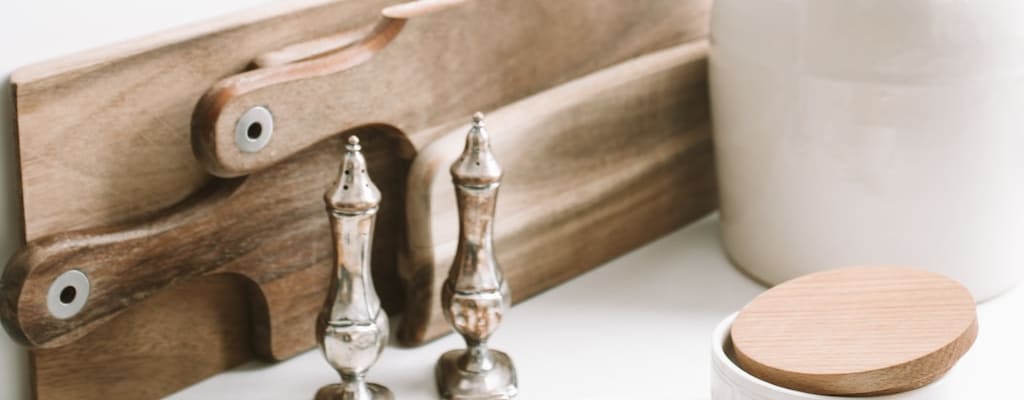roof over one’s head: Idiom Meaning and Origin
What does ‘roof over one's head’ mean?
The idiom "roof over one's head" means having a place to live or having shelter. It emphasizes the basic necessity of having a roof to protect oneself from the elements.

Idiom Explorer
The idiom "rule the roost" means to be in control or have authority over others, especially in a family or group setting.
The idiom "rear one's head" means to appear or become evident after a period of inactivity or hiding.
The idiom "raise the roof" means to create a loud uproar or excitement, usually in response to something notable or impressive. It is often used in a celebratory or enthusiastic context.
The idiom "rain buckets" means to rain heavily or pour down. It can be used both literally, describing heavy rainfall, and figuratively, to describe a situation with a large amount of something.
The idiom "put up" means to tolerate or endure a difficult situation or person. It can also refer to providing accommodations for someone temporarily.
The idiom "put one's head in the sand" means to ignore or avoid reality or a problem, refusing to acknowledge it or take action. It is often used to describe someone who is in denial or unwilling to face the truth.
The idiom "put one over" means to deceive or trick someone in a clever or sneaky way.
The idiom "put food on the table" means to provide the necessary income or means to support oneself and one's family.
The idiom "put a hat on a hat" means to make a situation or an idea unnecessarily complicated or redundant by adding extra layers or elements.
The idiom "over the top" means to be excessive or exaggerated in behavior, action or expression.
Shelter and Security
The idiom "roof over one's head" is a commonly used expression in the English language. It refers to having a place to live or a stable shelter. This idiomatic phrase is often used to describe the basic need for housing and the significance it holds in an individual's life.
The metaphorical meaning of this idiom emphasizes the fundamental importance of having a roof over one's head. It symbolizes a sense of security and protection that a home provides. Having a safe and stable living arrangement is crucial for an individual's well-being and survival.
The origin of this idiom can be traced back to ancient times when people sought refuge from harsh weather conditions or potential dangers. A roof has always been seen as a means of protection and shelter. This idiomatic expression taps into our primal instincts and the instinctive need for a secure and stable place to call home.
This idiom is widely used in various contexts, including discussions on homelessness, housing affordability, and real estate. It serves as a reminder of the privilege of having a safe and comfortable living space, particularly in contrast to those who lack such basic necessities.
This idiom carries a certain weight, reminding individuals to appreciate and be grateful for the fundamental requirement of having a roof over their heads. It highlights the significance of having a place to belong, where one can feel safe, protected, and at ease. It also serves as a reminder of the fundamental human need for stability and security.
While this idiom may seem simple and straightforward, it encompasses deeper meanings and broader implications. It sparks reflection on the universal need for shelter and housing, and the impact it has on individuals and society as a whole.
One related idiom that comes to mind is "over one's head". This phrase is often used to describe something that is too difficult or complex for someone to understand. It can be seen as a contrast to the basic need for a roof over one's head. While having a home is a fundamental necessity, understanding complex concepts may be beyond someone's capabilities.
Another related idiom is "put one's head in the sand". This expression is used to describe someone who avoids or ignores a difficult or unpleasant situation. It can be seen as a contrast to the idea of having a roof over one's head. While having a stable living arrangement provides a sense of security, avoiding problems and not facing reality can have negative consequences.
A third related idiom is "look over one's shoulder". This phrase is often used to describe someone who is constantly worried or anxious about potential dangers or threats. It can be seen as a contrast to the sense of security provided by having a roof over one's head. While a stable home offers protection, constantly looking over one's shoulder implies a lack of security and peace of mind.
An additional idiom that relates to this concept is "on top of". This phrase is often used to describe someone who is in control of a situation or managing responsibilities effectively. It can be seen as a contrast to the vulnerability that comes with not having a roof over one's head. Being "on top of" things implies a level of stability and control that comes with having a secure and comfortable living arrangement.
One more idiom that relates to this topic is "over one's skis". This phrase is often used to describe someone who is overextended or taking on too many responsibilities. It can be seen as a contrast to the sense of safety and stability that comes with having a roof over one's head. Being "over one's skis" implies a lack of balance and the potential for negative consequences.
The idiom "roof over one's head" carries significant meaning and serves as a reminder of the fundamental need for shelter and housing. It emphasizes the importance of having a place to call home and highlights the sense of security and stability it provides. In contrast, related idioms such as "over one's head", "put one's head in the sand", "look over one's shoulder", "on top of", and "over one's skis" add further depth and contrast to the concept of having a roof over one's head.
Example usage
Examples of how the idiom "roof over one's head" can be used in a sentence are:
1. He was thankful to have a roof over his head during the storm.
2. The homeless shelter provided a roof over their heads for the night.
3. She worked hard to earn enough money to put a roof over her children's heads.
More "Housing" idioms



